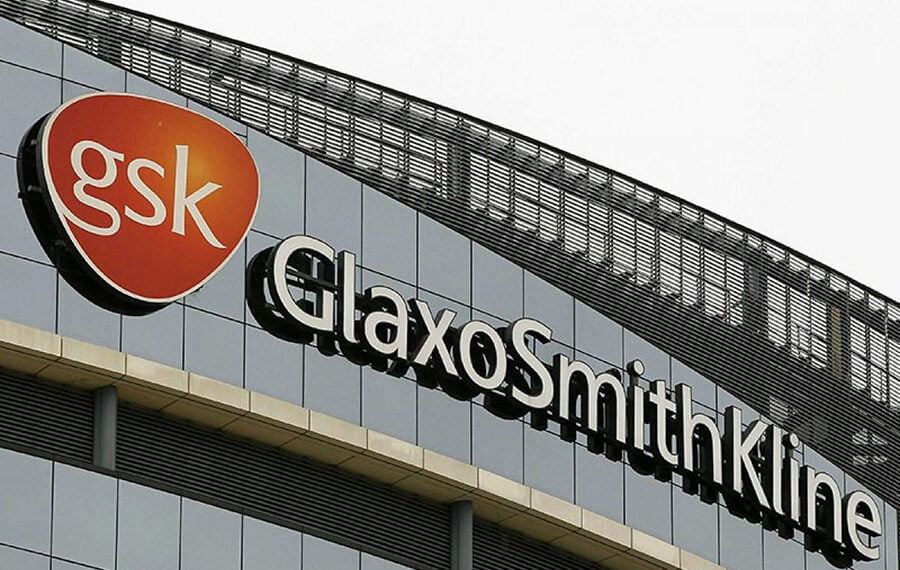
Nigeria’s transition triumphs amidst challenges as we enter seamlessly a fifth democratic government showing signals of resilience, despite economic and political turmoil, sparking moments of discontent and optimism across the nation. GSK.
Optimism graces the Nigerian Financial Sector, as Capital markets soar with a long-awaited bull run, offsetting years of disappointment.
Despite a daunting cash crunch, local companies report commendable financial standing amidst challenges and difficulties.
As Nigeria transitioned, optimism was surreptitiously lumbered with new policy changes, plunging the fragile economy into regression.
The blow was exacerbated by GSK Plc’s August 3rd announcement of discontinuation, eliciting widespread social media lamentation.
The abrupt exit paralleled the shock of veteran soldiers learning of their cherished general’s retirement after years of valour and guidance.
A once-central figure in Nigeria’s pharma sector, GSK’s departure starkly reveals the nation’s business complexities, especially forex-dependent industries.
This exit not only means job losses but a wider economic void, impairing an ailing industry and exacerbating drug shortages, particularly impactful as the ageing population’s needs grow.
As Nigeria grapples with inflation, job loss, and socioeconomic disparities, the necessity of sustaining entities like GSK becomes evident.
Amid concerns about financial stability and the socio-economic gap, a pertinent query emerges: Can Nigeria withstand the loss of GSK or similar entities due to forex challenges?
The answer is a resounding no. This is buttressed by an old Chinese proverb, which says
- “Defeat is never a reality until all have come to accept defeat as the only reality.”
Considering this, proactive solutions are essential. In looking at remedies, acclaimed businessman Michael Gerber’s wisdom resonates:
- “The entrepreneur in us sees opportunities everywhere we look, but many see only problems everywhere they look.”
Let’s momentarily shift our focus to explore solutions for GSK’s preservation. Initial data reveals a thriving global pharmaceutical market worth $1.25 trillion in 2019, growing 4.5% from 2018.
Forecasts indicate a 4%-5% CAGR surge, reaching $2.03 trillion by 2028.
With health spending’s 5.4% CAGR surge, especially catering to Baby Boomers, toddlers and infants, opportunities emerge, as we require the companies like GSK to expand Nigeria’s tax net.
Lagos govt knocks Seyi’s comment on training sons to have ‘s3x with girls’
On the Continent, data from Augusto & Co., reveals that the Nigerian Pharmaceutical market is the second largest after South Africa, supplying more than 60% of the drugs consumed in the West African subregion, however, about 70% of pharmaceuticals sold in Nigeria are imported.
A Statista.com research into the Nigerian market revealed it was worth some $ 1.4 billion in 2022 and is projected to reach $ 3.5 billion by 2028.
Further data from Pharma West Africa, shows our market splits into; Over the Counter (43.1%), Generic drugs (38.9%), and Patented (12%).
A complex matrix of demand dynamics characterizes Nigeria’s pharmaceutical landscape.
While pain-relief drugs form a quarter of local demand and multivitamins, tonics, and antimalarials account for 15% each, the domestic pharmaceutical manufacturing sector remains inadequate, satisfying just a quarter of demand and contributing less than 1% to GDP annually over the past decade.
The Access Bank’s 2021 corporate digest flags a litany of challenges miring the sector: the influx of counterfeit substitutes, an underdeveloped healthcare infrastructure, limited government funding, constrained private sector investment, forex scarcities, constrained consumer spending, haemorrhaging revenues through medical tourism, soaring bank interest rates, steep R&D costs, and stifling delivery expenditures, all conceivably contributing to the disconcerting national life expectancy of 55.75 years.
Despite these challenges, the Access Bank report spotlights the potential for growth within Nigeria’s pharma realm.
Anchored by factors such as a growing national population, a sizable elderly demographic, a large segment of toddlers and infants, a vast West African populace, import restrictions fostering local industry, burgeoning health awareness, and an emerging market for alternative medicine driven by concerns over synthetic and counterfeit drugs.
Focusing on GlaxoSmithKline Consumer Nigeria Plc, its history intertwines with Nigeria’s financial narrative, with 46.42% of its traded shares held by Setfirst Ltd (27.31%) and SmithKline Beecham Ltd (19.11%), both under the GSK Plc UK umbrella.
Notable products include Amoxil, Augmentin, Engerix B, Panadol, Ventolin, Ampiclox, and Sensodyne.
Revenue breakdown from 2018 to 2022 highlights Pharmaceuticals (Vaccines & Prescriptions) contributing 68%, and Consumer Healthcare (Oral Care, OTC & Nutritional Care) making up 32%.
Average Gross Margin hovers around 4%, indicative of high revenue generation costs.
Furthermore, export sales contributed a modest 0.20% (N216 million) in 2020 & 2021, signalling a largely localized market focus. However, logistical challenges in transborder distribution could be a mitigating factor.
Regardless, over the past 5 financial years, GSK has grown topline Revenue by a 7% CAGR, from N18.4 billion to 25.4 billion in 2022.
In that 5-year span, the company has reported revenues, combined, of N108.3 billion, and doled a combined tax to the tune of N1.80 billion.
So, the question is; Is FGN really going to fold its hands and allow a company that has paid it so much in statutory levies, just close shop, due to its policies?
The company’s audited reports show that though overall salary payout had dropped 38% from N1.1Bil in 2018 to N663Mil in 2022, she has issued combined staff pay–slips to the tune of N4.9Bil. This is of course aside from other benefits and emoluments.
H1 2023 unaudited shows more than N600Mil paid in some staff benefits.
Thus, my next question, and directed to the staff whose diligence has ensured a healthy nation over the years. Is that it? Can nothing be done to save your daily means of livelihood?
As shareholders reflect on a tumultuous journey marked by moments of prosperity and adversity, they find themselves recipients of significant dividends exceeding N2.9 billion over the past five fiscal years (2018-2022).
The recent Earnings Per Share (EPS) reduction from 29k (H1 2022) to 28k in 2023 warrants contemplation. A pivotal question emerges for these stakeholders: Does their expected ROI warrant a comprehensive reassessment of strategies, including potential sacrifices, to rescue the company amid evident challenges?
Meanwhile, the top management, while grappling with a cumulative Net Foreign Exchange Loss of N741 million over the past 5 years (compounded by a staggering N10.9 billion loss in H1 2023), showcases resilience in fostering growth.
A commendable CAGR of 47% in Cash & Cash Equivalents from N3.4 billion (FY 2018) to N23.2 billion (H1 2023), along with robust asset base growth from N15.7 billion (2018) to N30.2 billion (H1 2023) stands as testament.
Notably, shareholder equity expanded from N8.8 billion to N9.2 billion (H1 2023), underscoring leadership’s strategic prowess.
While grappling with staggering financial losses and contract terminations by GSK UK & Haleon Group, management must contemplate a critical question: Does the resolute commitment to forge ahead persist?
A potential strategic board meeting emerges as a beacon of hope a forum to explore innovative solutions, invigorating the company’s mission to provide essential health and wellness services while safeguarding myriad livelihoods.
While the intricacies behind this perplexing corporate move elude full comprehension, one resounding truth emerges: we are Nigerians—resilient, resourceful, and unwavering.
With queries posed to Management, Stakeholders, and diligent employees, the answer echoes: we’ve weathered storms.
Armed with data, I provide suggested fragmented solutions to GSK’s challenge, hopeful that collective expertise will piece together a revival for a respected company.
The buyback/buyout scheme: Amid an “accelerated cash distribution and return of capital scheme,” could a buyout offer an answer?
As of the close of trade on August 16, 2023, Nigerian stakeholders possess more equity, valued at N6.4 billion, surpassing GSK UK’s N5.6Bil.
With robust finances and assets, stakeholders, management, and employees might contemplate engaging in negotiations for a structured buyout, leveraging patents, assets, and future cashflows for a holistic solution.
Time for New Suitors: GSK Nigeria’s longstanding UK partnership has yielded success. While their departure is untimely, it unveils new avenues in the East. With 40% of pharmaceutical imports from China and India, a flourishing local market might entice these giants to seize the 46.42% equity opportunity, fortifying existing local ties.
Import Knowledge! Not the goods: Following the unification of the Naira, imports have become more impractical. Opting for knowledge sharing with new partners to optimize R&D using local resources, suiting the entity and market should be the focus.
Time to Raise Fresh Capital: Acquiring the parent firm may strain finances, yet a skilled board could secure market capital. If armed with experts in the trade, the seasoned entity might tap willing markets to thrive for decades more.
Time to merge the old with the new: Embracing ancient wisdom, traditional medicine’s resurgence is undeniable. Amidst the pandemic, Nigerians found solace in concoctions of garlic, ginger, and more. Globally, 35,000–50,000 plant species have been medicinal marvels.
Nigeria’s fertile land fuels this revival, where investments in R&D could propel the traditional medicine sector to a projected N40 billion by 2030.
Proper documentation, clinical trials, packaging, and patents will drive this blooming eco-conscious trend.
This should be a major question shearing the minds of stakeholders /, as collaboration with the Nigeria Association of Medical Herbalists, and other such registered bodies of herbal concocting maestros, could greatly bolster profits in another 5 years.
Make Local Sourcing the imperative, not the option: Beyond doubt, tapping into local resources can boost the economy, especially agriculture, a key component of over 80% of drugs.
This move might inspire youth to embrace farming, nurture medicinal herbs, and enhance skill diversity for higher-quality products.
Export, export, export: With imports affecting both profits and the economy, a shift is evident. A modest N216 million export value prompts the new company and its board to explore a 400-million-strong sub-regional market for potential gains.
Strive for Cheaper Production Costs: The fuel subsidy removal and diesel taxes have spiked production costs. Tapping into the Nigerian Energy Transition Agenda (NETA), the new entity could explore renewable power solutions. International support might open doors for limitless opportunities.
Cut the fat, not the Staff: Experienced staff across manufacturing, sales, marketing, and administration may rally, making strategic sacrifices to navigate this storm and secure the company’s future success, despite the challenges in acquiring talent.
Government Support/Concessions: In a recent nationwide address, President Tinubu unveiled plans to bolster manufacturing, spurring job creation and sustainable growth. A proposed N75 billion fund aims to aid 75 promising enterprises. Each could secure N1 billion credit at 9% interest, repayable over 60 months (5 years). The newly formed company could seize this chance to be one of the transformative 75.
Do we perhaps have any bank(s) to the rescue? Amidst challenges, can we count on banks to step in?
While my proposals are not exhaustive, let’s conclude with a reminder from Catherine Pulsifer:
- “Opportunities surround us daily yet recognizing them requires open-mindedness and embracing all ideas without bias.”













One thought on “The GSK Exit: The grim realities, the abundant opportunities”